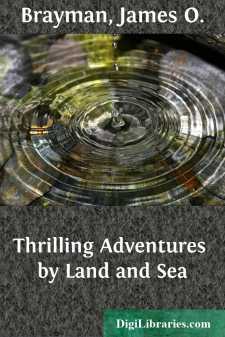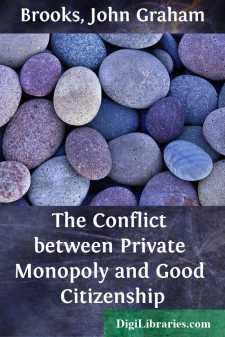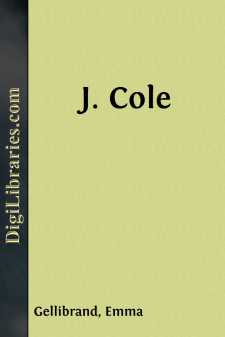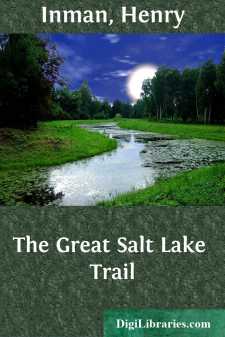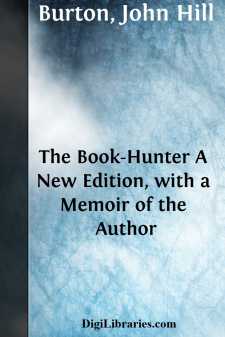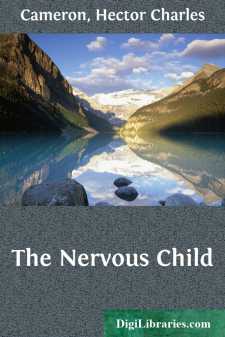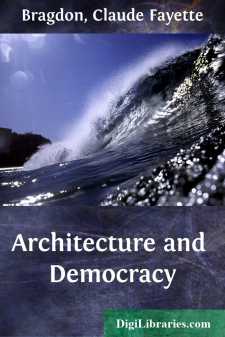Categories
- Antiques & Collectibles 13
- Architecture 36
- Art 48
- Bibles 22
- Biography & Autobiography 815
- Body, Mind & Spirit 144
- Business & Economics 28
- Children's Books 18
- Children's Fiction 14
- Computers 4
- Cooking 94
- Crafts & Hobbies 4
- Drama 346
- Education 58
- Family & Relationships 59
- Fiction 11835
- Games 19
- Gardening 17
- Health & Fitness 34
- History 1378
- House & Home 1
- Humor 147
- Juvenile Fiction 1873
- Juvenile Nonfiction 202
- Language Arts & Disciplines 89
- Law 16
- Literary Collections 686
- Literary Criticism 179
- Mathematics 13
- Medical 41
- Music 40
- Nature 180
- Non-Classifiable 1768
- Performing Arts 7
- Periodicals 1453
- Philosophy 65
- Photography 2
- Poetry 896
- Political Science 203
- Psychology 44
- Reference 154
- Religion 515
- Science 126
- Self-Help 85
- Social Science 83
- Sports & Recreation 34
- Study Aids 3
- Technology & Engineering 59
- Transportation 23
- Travel 463
- True Crime 29
Our website is made possible by displaying online advertisements to our visitors.
Please consider supporting us by disabling your ad blocker.
Thrilling Adventures by Land and Sea
by: James O. Brayman
Description:
Excerpt
INCIDENT AT RESACA DE LA PALMA.
Sergeant Milton gives the following account of an incident which befel him at the Battle of Resaca de la Palma.
"At Palo Alto," says he, "I took my rank in the troop as second sergeant, and while upon the field my horse was wounded in the jaw by a grape-shot, which disabled him for service. While he was plunging in agony I dismounted, and the quick eye of Captain May observed me as I alighted from my horse. He inquired if I was hurt. I answered no--that my horse was the sufferer. 'I am glad it is not yourself,' replied he; 'there is another,' (pointing at the same time to a steed without a rider, which was standing with dilated eye, gazing at the strife,) 'mount him,' I approached the horse, and he stood still until I put my hand upon the rein and patted his neck, when he rubbed his head alongside of me, as if pleased that some human being was about to become his companion in the affray.
"On the second day, at Resaca de la Palma, our troop stood anxiously waiting for the signal to be given, and never had I looked upon men on whose countenances were more clearly expressed a fixed determination to win. The lips of some were pale with excitement, and their eyes wore that fixed expression which betokens mischief; others, with shut teeth, would quietly laugh, and catch a tighter grip of the rein, or seat themselves with care and firmness in the saddle, while quiet words of confidence and encouragement were passed from each to his neighbor. All at once Captain May rode to the front of his troop--every rein and sabre was tightly grasped. Raising himself and pointing at the battery, he shouted, 'Men, follow!' There was now a clattering of hoofs and a rattling of sabre sheaths--the fire of the enemy's guns was partly drawn by Lieutenant Ridgely, and the next moment we were sweeping like the wind up the ravine. I was in a squad of about nine men, who were separated by a shower of grape from the battery, and we were in advance, May leading. He turned his horse opposite the breastwork, in front of the guns, and with another shout 'to follow,' leaped over them. Several of the horses did follow, but mine, being new and not well trained, refused; two others balked, and their riders started down the ravine to turn the breastwork where the rest of the troop had entered. I made another attempt to clear the guns with my horse, turning him around--feeling all the time secure at thinking the guns discharged--I put his head toward them and gave him spur, but he again balked; so turning his head down the ravine, I too started to ride round the breastwork.
"As I came down, a lancer dashed at me with lance in rest. With my sabre I parried his thrust, only receiving a slight flesh-wound from its point in the arm, which felt at the time like the prick of a pin. The lancer turned and fled; at that moment a ball passed through my horse on the left side and shattered my right side. The shot killed the horse instantly, and he fell upon my left leg, fastening me by his weight to the earth. There I lay, right in the midst of the action, where carnage was riding riot, and every moment the shot, from our own and the Mexican guns, tearing up the earth around me. I tried to raise my horse so as to extricate my leg but I had already grown so weak with my wound that I was unable, and from the mere attempt, I fell back exhausted. To add to my horror, a horse, who was careering about, riderless, within a few yards of me, received a wound, and he commenced struggling and rearing with pain. Two or three times, he came near falling on me, but at length, with a scream of agony and a bound, he fell dead--his body touching my own fallen steed. What I had been in momentary dread of now occurred--my wounded limb, which was lying across the horse, received another ball in the ankle.
"I now felt disposed to give up; and, exhausted through pain and excitement, a film gathered over my eyes, which I thought was the precursor of dissolution. From this hopeless state I was aroused by a wounded Mexican, calling out to me, 'Bueno Americano,' and turning my eyes toward the spot, I saw that he was holding a certificate and calling to me. The tide of action now rolled away from me and hope again sprung up. The Mexican uniforms began to disappear from the chapparal, and squadrons of our troops passed in sight, apparently in pursuit. While I was thus nursing the prospect of escape, I beheld, not far from me, a villainous-looking ranchero, armed with an American sergeant's short sword, dispatching a wounded American soldier, whose body he robbed--the next he came to was a Mexican, whom he served the same way, and thus I looked on while he murderously slew four. I drew an undischarged pistol from my holsters, and laying myself along my horse's neck, watched him, expecting to be the next victim; but something frightened him from his vulture-like business, and he fled in another direction. I need not say that had he visited me I should have taken one more shot at the enemy, and would have died content, had I succeeded in making such an assassin bite the dust. Two hours after, I had the pleasure of shaking some of my comrades by the hand, who were picking up the wounded. They lifted my Mexican friend, too, and I am pleased to say he, as well as myself, live to fight over again the sanguine fray of Resaca de la Palma."
While the plague raged violently at Marseilles, every link of affection was broken, the father turned from the child, the child from the father; cowardice and ingratitude no longer excited indignation. Misery is at its height when it thus destroys every generous feeling, thus dissolves every tie of humanity! the city became a desert, grass grew in the streets; a funeral met you at every step.
The physicians assembled in a body at the Hotel de Ville, to hold a consultation on the fearful disease, for which no remedy had yet been discovered. After a long deliberation, they decided unanimously, that the malady had a peculiar and mysterious character, which opening a corpse alone might develope--an operation it was impossible to attempt, since the operator must infallibly become a victim in a few hours, beyond the power of human art to save him, as the violence of the attack would preclude their administering the customary remedies. A dead pause succeeded this fatal declaration. Suddenly, a surgeon named Guyon, in the prime of life, and of great celebrity in his profession, rose and said firmly, "Be it so: I devote myself for the safety of my country. Before this numerous assembly I swear, in the name of humanity and religion, that to-morrow, at the break of day, I will dissect a corpse, and write down as I proceed, what I observe." He left the assembly instantly. They admired him, lamented his fate, and doubted whether he would persist in his design. The intrepid Guyon, animated by all the sublime energy which patriotism can inspire, acted up to his word. He had never married, he was rich, and he immediately made a will; he confessed, and in the middle of the night received the sacraments. A man had died of the plague in his house within four and twenty hours. Guyon, at daybreak, shut himself up in the same room; he took with him an inkstand, paper, and a little crucifix. Full of enthusiasm, and kneeling before the corpse, he wrote,--"Mouldering remains of an immortal soul, not only can I gaze on thee without horror, but even with joy and gratitude. Thou wilt open to me the gates of a glorious eternity. In discovering to me the secret cause of the terrible disease which destroys my native city, thou wilt enable me to point out some salutary remedy--thou wilt render my sacrifice useful. Oh God! thou wilt bless the action thou hast thyself inspired." He began--he finished the dreadful operation, and recorded in detail his surgical observations. He left the room, threw the papers into a vase of vinegar, and afterward sought the lazaretto, where he died in twelve hours--a death ten thousand times more glorious than the warrior's, who, to save his country, rushes on the enemy's ranks,--since he advances with hope, at least, sustained, admired, and seconded by a whole army.
A THRILLING INCIDENT.
An incident occurred at the Key Biscayne lighthouse, during the Florida war, which is perhaps worth recording. The lighthouse, was kept by a man named Thompson....


